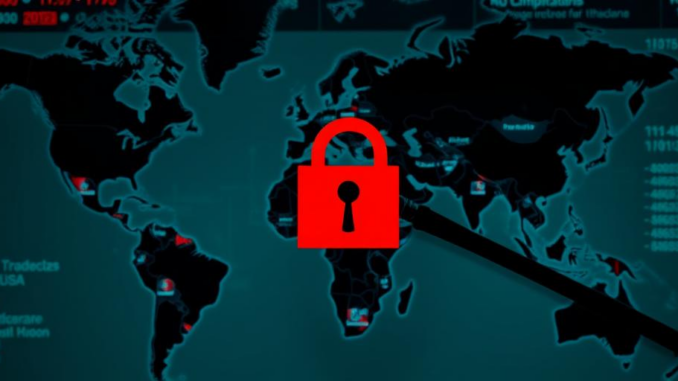
Summary
The US, UK, and Australia have jointly sanctioned Zservers, a Russian bulletproof hosting provider, for its support of LockBit ransomware attacks. This action aims to disrupt the ransomware ecosystem by targeting the infrastructure that enables these attacks. Two Russian nationals administering Zservers were also sanctioned.
Explore the data solution with built-in protection against ransomware TrueNAS.
** Main Story**
We’re seeing some serious moves in the fight against ransomware. Recently, on February 11, 2025, the US, UK, and Australia teamed up to sanction Zservers, a Russian “bulletproof hosting” provider, and two of its main guys. What’s bulletproof hosting, you ask? Well, it’s basically a safe haven for cybercriminals. Think of it as a digital bunker. Zservers, based in Russia with a UK front company called XHOST Internet Solutions, has been a key enabler for groups like LockBit.
These bulletproof hosting providers are pretty important to the whole ransomware mess. They give criminals a place to hide, offering servers and other tech that’s designed to dodge detection. It’s like a shadow IT department for hackers. This lets groups like LockBit launch attacks, plan stuff out, and talk to victims, all while staying hidden. And get this: Zservers even advertised its services on hacker forums, basically saying, ‘Come here if you want to stay off the radar.’
LockBit, with its ransomware-as-a-service model, has been a major headache for years now. They’ve hit thousands of organizations worldwide, causing billions in losses through ransom payments and recovery costs. Healthcare, education, finance – you name it, they’ve probably targeted it. Remember the attack on the Industrial Commercial Bank of China’s US broker-dealer back in November 2023? Talk about a wake-up call. It really showed the kind of damage they’re capable of.
So, how did they connect Zservers to LockBit? Here’s where it gets interesting. Back in 2022, Canadian law enforcement raided a LockBit affiliate and found a laptop. Inside, there was a virtual machine hooked up to a Zservers IP address, running a LockBit malware interface. Clever! Further digging turned up lots of instances where LockBit affiliates were leasing IPs from Zservers to launch attacks. Which, I think, goes to show the level of integration there was between these two groups.
This joint effort is a big deal. By going after bulletproof hosting providers, authorities are trying to mess up the whole ransomware ecosystem. It’s like cutting off the oxygen supply. Sanctioning Zservers freezes their assets and makes it illegal for people in the sanctioning countries to do business with them. That should throw a spanner in the works for future attacks. The message is clear: help ransomware groups and you will face consequences.
And it’s not just about LockBit. This sends a message to other ransomware groups and BPH providers, too. It’s a sign that international law enforcement is serious about taking down the entire ransomware network, no matter where they are. While, I think, the fight’s far from over, moves like these are essential. They aim to cripple ransomware operations at their core, making it harder for these groups to operate and profit from their malicious activities. I mean, if they can’t hide, they can’t attack, right? In the end, the goal is to protect us all from this ever-evolving threat.


“Bulletproof hosting”? Sounds like they need to add “cyber-roach motel” to the description: hackers check in, but they don’t check out… at least, not easily! I wonder if they offered mints on the pillow?
Ha! “Cyber-roach motel” is a fantastic analogy. I agree, maybe some tiny chocolate hacking tools on the pillow would complete the experience. It really highlights the difficulty in shutting these services down, even when sanctioned. It will be interesting to see how quickly Zservers can re-establish itself, if at all.
Editor: StorageTech.News
Thank you to our Sponsor Esdebe
The international cooperation highlights the increasing importance of coordinated efforts to combat cybercrime across borders. It will be interesting to see if this action prompts other nations to implement similar sanctions against bulletproof hosting providers.
I agree completely! The international cooperation is definitely key. It will be interesting to see how this impacts the legal landscape, and whether other nations adopt similar strategies to target bulletproof hosting providers. Perhaps this action will foster more global partnerships in the fight against cybercrime.
Editor: StorageTech.News
Thank you to our Sponsor Esdebe